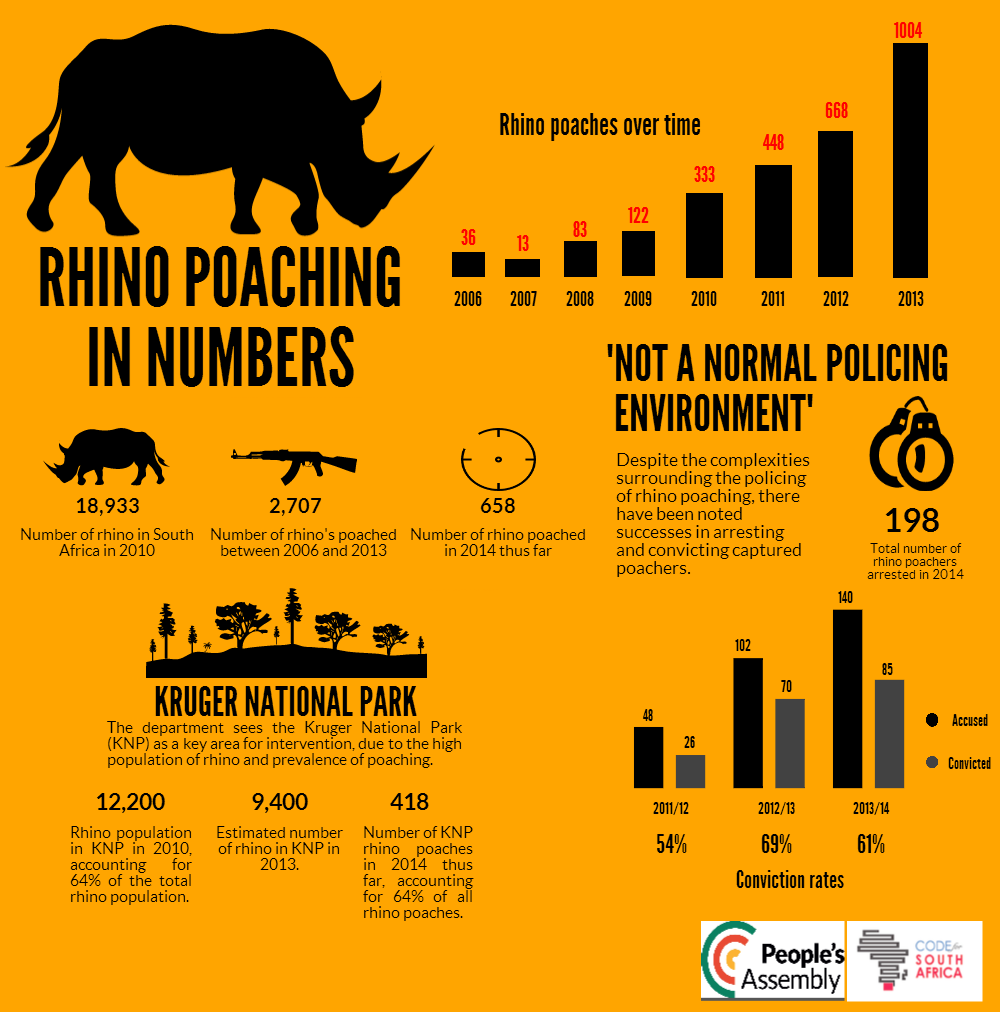The conservation of South Africa’s dwindling rhino population took the spotlight when the Department of Environmental Affairs briefed its parliamentary oversight committee on its progress with initiatives to deal with rhino poaching, its current and future interventions, while noting the shortcomings and challenges it faced.

Current interventions sees the department deploy SANDF soldiers for specialised border control, while intelligence efforts have been ramped up, with pre-emptive operations taking place since 2011. These interventions have been overseen by National and Provincial inter-departmental priority committees, with Deputy Director General (DDG), Fundisile Mketeni, stressing the need for a nationwide approach to protecting the rhino population, rather than focusing provincially.
The DDG points to positive outcomes from these interventions with 198 poachers already arrested in 2014, with plans in place for having a dedicated prosecution team with senior state advocates to ensure that poachers face the full extent of the law.
Future interventions centre on stepping up the policing of borders, with a special emphasis on the Kruger National Park, where most of the poaching has taken place.
Challenges
The department concedes that efforts to curb rhino poaching will be in vain if there continues to exist a thriving market with a big demand for rhino horn. But while addressing the source of the problem is key in combating rhino poaching, this is a systemic challenge in that the market for rhino horns is an international one, and beyond the control of the South African government. Only a coordinated effort between South Africa and countries hosting illicit horn-trading markets will allow government to tackle the problem at its root. This, argues the DDG, would require extensive investment in time and resources.
The department also stresses the need for increased resources and budget allocations to successfully implement domestic interventions, claiming that the policing of borders is an exceptionally difficult task requiring extensive manpower, which can only be realised through increased funds. Moreover, intelligence gathering in this context is proving challenging, and further investment would be needed to advance intelligence operations.
While the DDG remains optimistic about his department’s ability to achieve its mandate, he concedes that more work needs to be done, and that further investment in resources is crucial in realising their goals.


Comments
Keep comments free of racism, sexism, homophobia and abusive language. People's Assembly reserves the right to delete and edit comments
(For newest comments first please choose 'Newest' from the 'Sort by' dropdown below.)